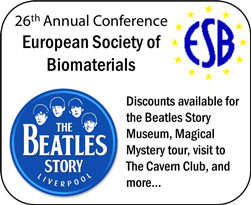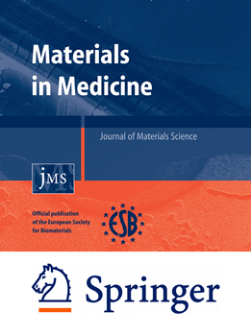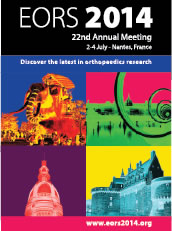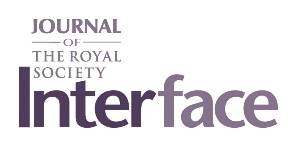Progressing Innovations from the Bench to Bedside
2nd September 2014, 09:00 – 18:00
Symposium Organizers: Yves Bayon, Marc Bohner, David Eglin & Paul-Henri Vallotton
The symposium is still available for sponsorship.
The path leading to commercialization – from promise to actual delivery, from prototype to useful product – is scattered with great challenges and hurdles:
- Financing
- Intellectual property (i.e. patentability, freedom to operate)
- Legal agreements with partners and services/research contractors
- Regulatory environment driven by FDA, CE mark – notified bodies, EMEA…
- Manufacturing process and its validation
- Clinical trial design
- Relationships with national/regional healthcare authorities
- Healthcare reimbursement policies.
On the other hand, the latest generations of biomaterials, are becoming more and more sophisticated, such as combination products and smart materials may face the limitations of standard in vitro and in vivo evaluation techniques. Regulatory agencies continuously raise the quantity of requested information for any new submitted devices: purity and characterization, safety and performance evaluation, mechanism of action, etc. In these respects, academia and industries may increasingly be partners throughout the full cycle of the commercial development of new biomaterial concepts and technologies.
Ideas often start on pieces of paper and a test tube on the basis of basic science research, in academic and institutional laboratories, with the support of public and philanthropic research grants. Talented scientists drive these ideas and projects through various stages of early development that mostly result in significant scientific achievements, illustrated by publications in peer-reviewed journals and, less often, by patent filings. Many of the new biomaterial concepts and technologies, when carefully evaluated, may have benefit for patients and the public. But this further requires rigorous complementary research development activities to advance new concepts and technologies to the patients and the public: e.g. preclinical proof of concept and performance evaluation by in vivo animal studies, extensive biocompatibility studies to be performed according to international standards and in GLP (Good Laboratory Practice) conditions, safety and performance evaluation in expensive human clinical trials with appropriate product type (formulation, device etc.).
New concepts and technologies are generally percolated to life and progress through the early incubation phase, often showing proof-of-concept and the full promise of potentially innovative products. But, most translational efforts die here and there are multiple financial, scientific and sociological reasons for this phenomenon.
Given the increasing links between academic research and industry globally, the ESB 2014 conference includes this Translational Research Symposium. This will bring together leading Tier one companies in the medical device markets, small and medium enterprises and entrepreneurial academics who can share their experiences on taking biomaterials technologies to commercial endpoints.
The Symposium will focus on ‘Progressing innovations from bench to bedside’. It will be richly illustrated by testimonies of leading biomaterials & medical device industries, start-up & SME entrepreneurs and academics, in the business exploitation and commercial translation of biomaterial related concepts and ideas, for now and to the 2020+ horizon. The main goal of the programme is to highlight the key factors leading to, or impairing successful translation.
Specifically the industry will include three sessions:
1) The Industry Translation Process & 2020 Horizon – Invited speakers (e.g. DePuy, Covidien).
2) Academic management innovation & Academic spin-offs testimonies – Invited speakers and Panel discussion with selected industries, entrepreneurs & academics.
3) Forum for sharing translation initiatives – Abstract submission, Q&A with a mixed panel of industrials, entrepreneurs and academics.
This event will be of interest to a wide audience from large medical device producers to academics and entrepreneurs and promoters of biomaterial technologies for medical applications. The programme includes significant time for networking during coffee breaks and lunch.
The Symposium confirmed invited speakers include:
- Geoff Richards (AO Research Foundation, Davos);
- Andrea Montali (Depuy Synthes)
- Lars Neumann (Materialise NV, Leuven)
- Philip Procter (Medical Device Industry Consultant)
- Kevin Shakesheff (University of Nottingham and Regentec)
- John Fisher (University of Leeds)
- Michel Thérin (Covidien, Lyon)
- Iain McDougall (Taragenyx, UK)
Biographies and videos of the invited speakers for the Translational Research Symposium are presented below:
Dr Lars Neumann is a business development manager at Materialise NV, Belgium with specific focus on software for biomedical engineering.
Lars received his doctoral degree in 2012 in Physics from ICFO – The Institute of Photonic Science in Barcelona. His research interests focussed on improving optical imaging techniques for biological systems by custom shaping of laser light fields through the application of nanotechnology. After his doctoral degree, Lars moved to Germany and engaged in the creation and optimisation of R&D project and process management in the automobile industry.
As a physicist curious for new technologies, Lars became interested in additive manufacturing, also known as 3D Printing, and the opportunities that the technology offers especially in biomedical engineering. The human body is one of the most individual systems we can imagine, yet most of our tools and devices are off the shelf and not customised.
At Materialise, Lars focusses on the principle of “Engineering on Anatomy” within the Mimics Innovation Suite and its applications in patient-specific biomedical engineering and science. In his role as business development manager, he is responsible for the academic users of the Mimics Innovation Suite worldwide. Lars is in charge of Materialise’s developing educational programme in Engineering on Anatomy and involved in several European Union funded research projects with academic and industrial partners.
Professor Kevin Shakesheff is Director of the UK Regenerative Medicine Platform Hub for Acellular Technologies. His independent scientific career began at the Massachusetts Institute of Technology under a NATO fellowship following a PhD and his qualification as a register pharmacist. His inventions and scientific breakthroughs have resulted in over 170 peer-reviewed full papers that have been cited more than 5500 times to date, the establishment of 2 successful companies, the submission of 13 patent application families and numerous international awards. He currently holds a prestigious European Research Council Advanced Grant within an active research portfolio of more than £7 million. In addition, he has taken a leading role in shaping interdisciplinary research in the UK through continued membership of senior policy and grant awarding committees. In 1997 he founded, with Dame Julia Polak, the Tissue and Cell Engineering Society (TCES). In 2013 he became a Royal Society Wolfson Merit Award Holder. He is a member of the Medicines and Healthcare Products Regulatory Authority (MHRA) Biologicals and Vaccines Expert Advisory Group, co-Director of the EPSRC Centre for Innovative Manufacturing Centre in Regenerative Medicine, Lead of the Research Councils UK India Science Bridge in Biopharmaceuticals and a Member of the Department of Health’s Modernising Pharmacy Careers Programme. He is a Sub-Panel Member for the UK’s Research Excellence Framework (REF) for 2014. In 2011 he was made a Fellow of the Royal Pharmaceutical Society ans in 2013 a Fellow of the Society of Biologists. In 2014 he was selected as one of the 10 most inspirational scientists in the UK by the Engineering and Physical Sciences Research Council (RISE Leader Award).
Professor John Fisher CBE is the deputy Vice Chancellor of the University of Leeds and Director of the Institute of Medical and Biological Engineering.












